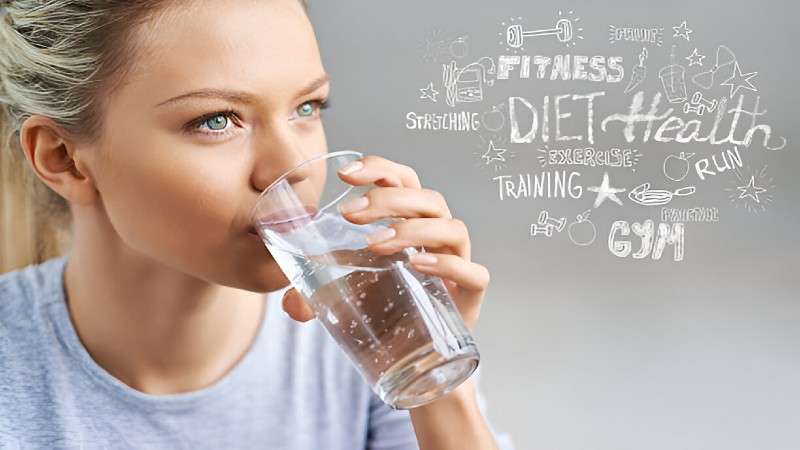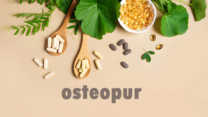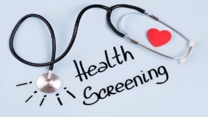
Hydration Is Key: Why Water Is Your Most Important Nutrient
The human body is an intricate machine, capable of incredible feats. Yet, its most fundamental requirement is often overlooked hydration is key. While we meticulously plan our diets and exercise routines, the simple act of drinking water is the single most impactful thing we can do for our health. It’s not just a beverage; it’s a vital nutrient, essential for every system, cell, and function in your body.
Far more than just a thirst quencher, water is the primary building block of our bodies, making up 50% to 75% of our composition. Unlike food, which we can survive without for weeks, we can only last a few days without water. This is because the body can’t store it, making a fresh supply necessary every single day to replenish what is lost through breathing, sweating, and waste elimination.
The Unseen Roles of Water in Your Body
Think of water as the ultimate multi-tasker. Its functions go far beyond simply keeping you from feeling thirsty. At a cellular level, water acts as a solvent, a reaction medium, and a carrier, ensuring that life’s chemical processes can happen smoothly. But its responsibilities don’t stop there.
Here are some of the critical functions water performs that you may not even realize:
- Nutrient and Waste Transport: Water forms the basis of your blood, allowing it to carry essential nutrients and oxygen to every cell. Simultaneously, it picks up waste products, like urea, for elimination, keeping your internal systems clean and efficient.
- Temperature Regulation: Through sweating, water helps you maintain a stable body temperature, preventing overheating during physical activity or in hot weather.
- Lubrication and Cushioning: Water lubricates your joints and acts as a shock absorber for vital organs, including your eyes, spinal cord, and even an unborn fetus during pregnancy.
- Organ Health: By keeping the bladder clear of bacteria, adequate hydration significantly reduces the risk of urinary tract infections (UTIs) and can help prevent kidney stones.
Finding Your Personal Hydration Needs
General guidelines for water intake are a great starting point, but the truth is, your personal hydration needs are unique. They are influenced by your activity level, the climate, your diet, and even certain health conditions.
General Fluid Intake Recommendations (Australian Dietary Guidelines)
| Age/Gender Group | Recommended Daily Fluid Intake |
| Men (19+ years) | 2.6 Litres (about 10 cups) |
| Women (19+ years) | 2.1 Litres (about 8 cups) |
| Pregnant Women | 2.3 Litres (about 9 cups) |
| Breastfeeding Women | 2.6 Litres (about 10 cups) |
| Children (4-8 years) | 1.2 Litres (about 5 cups) |
Dehydration vs. Overhydration
The regulation of water balance is a remarkably precise homeostatic mechanism. Your body is designed to compensate for a 1% loss of body water within 24 hours. However, when this balance is lost, it can lead to two dangerous conditions.
Dehydration
Dehydration is far more common and occurs when the body’s fluid content is too low. The initial signs are simple—thirst, headaches, and lethargy. If left uncorrected, dehydration can escalate, leading to symptoms such as speech incoherence, confusion, rapid heartbeat, and in severe cases, even organ failure.
Symptoms of Dehydration
- Thirst and dry mouth
- Headaches and mood changes
- Dark-colored urine
- Fatigue and weakness
- Dizziness or lightheadedness (orthostatic hypotension)
Young infants and the elderly are especially vulnerable to dehydration. Infants can become dehydrated rapidly due to illness, while the elderly may not feel thirsty even when their bodies are in a fluid deficit.
Hyponatraemia (Overhydration)
While rare, it is possible to drink too much water, a condition known as hyponatraemia or water intoxication. This happens when excessive water consumption in a short period dilutes the sodium levels in the blood, which are crucial for nerve and muscle function. Symptoms include headaches, blurred vision, cramps, and in extreme cases, brain swelling and coma. This is most often a concern for endurance athletes or individuals with specific health conditions.
Hydration Beyond the Bottle
Instead of obsessing over a specific number of cups per day, shift your focus to a more holistic approach to hydration is key. Water is indeed the best choice, but it’s not the only way to stay hydrated.
Rethinking Your Fluid Sources
While sugary sodas, energy drinks, and fruit juices should be avoided due to their high calorie and sugar content, many other liquids can contribute to your daily intake. Milk, for instance, is about 90% water and is an excellent source of fluids, especially for children. Similarly, coffee and tea, despite containing caffeine, do not cause a net fluid loss and can be part of a healthy hydration strategy.
The most exciting and often-overlooked source of water, however, comes from your food. Up to 20% of your daily water intake can come from solid foods, especially fruits and vegetables.
Hydrating Foods
- Fruits: Watermelon, strawberries, cantaloupe, peaches
- Vegetables: Cucumber, lettuce, celery, tomatoes, zucchini
Simple Strategies to Elevate Your Hydration
Making hydration a habit doesn’t have to be a chore. Here are some simple, practical tips to ensure you’re meeting your body’s needs:
- Keep a bottle handy: Carry a reusable water bottle with you to make sipping throughout the day a natural habit.
- Infuse with flavor: Add slices of lemon, lime, cucumber, or fresh mint to your water for a refreshing twist without added sugar.
- Set reminders: Use an app or a simple alarm on your phone to remind you to drink at regular intervals.
- Drink with meals: Make it a rule to have a glass of water with every meal and snack.
Conclusion
In the end, it’s about listening to your body. Pay attention to how you feel, the color of your urine, and your energy levels. By making water a priority, you are investing in the health and vitality of every single cell in your body. Hydration is key to unlocking your full potential, proving that sometimes, the simplest solutions are the most powerful.
Frequently Asked Questions (FAQs)
How much water should I drink a day?
While general guidelines suggest around 8-10 cups (2-2.6 liters) of fluids daily, your personal needs vary based on factors like activity level, climate, and overall health.
Can I get water from other drinks and foods?
Yes, about 20% of your daily water intake comes from solid foods, especially fruits and vegetables. Other fluids like milk, tea, and soups also contribute to your hydration.
What are the signs of dehydration?
Common signs include thirst, headaches, fatigue, dark-colored urine, and dry mouth. More severe symptoms can include confusion, dizziness, and rapid heartbeat.
Is it possible to drink too much water?
Yes, though rare, drinking an excessive amount of water in a short period can lead to hyponatremia, a dangerous condition where blood sodium levels become too diluted.
Are sports drinks better than water for hydration?
For most people, water is sufficient for hydration. Sports drinks are generally only necessary for athletes engaged in intense, prolonged exercise lasting an hour or more, as they help replace lost electrolytes.
Does coffee or tea count toward my daily water intake?
Yes, caffeinated beverages like coffee and tea do contribute to your daily fluid intake. While they can have a mild diuretic effect, the fluid consumed still outweighs the fluid lost.
Why is water considered a nutrient?
Water is considered an essential nutrient because your body cannot produce enough of it on its own to meet its needs. It is vital for nearly every bodily function, including nutrient transport, temperature regulation, and waste removal.












